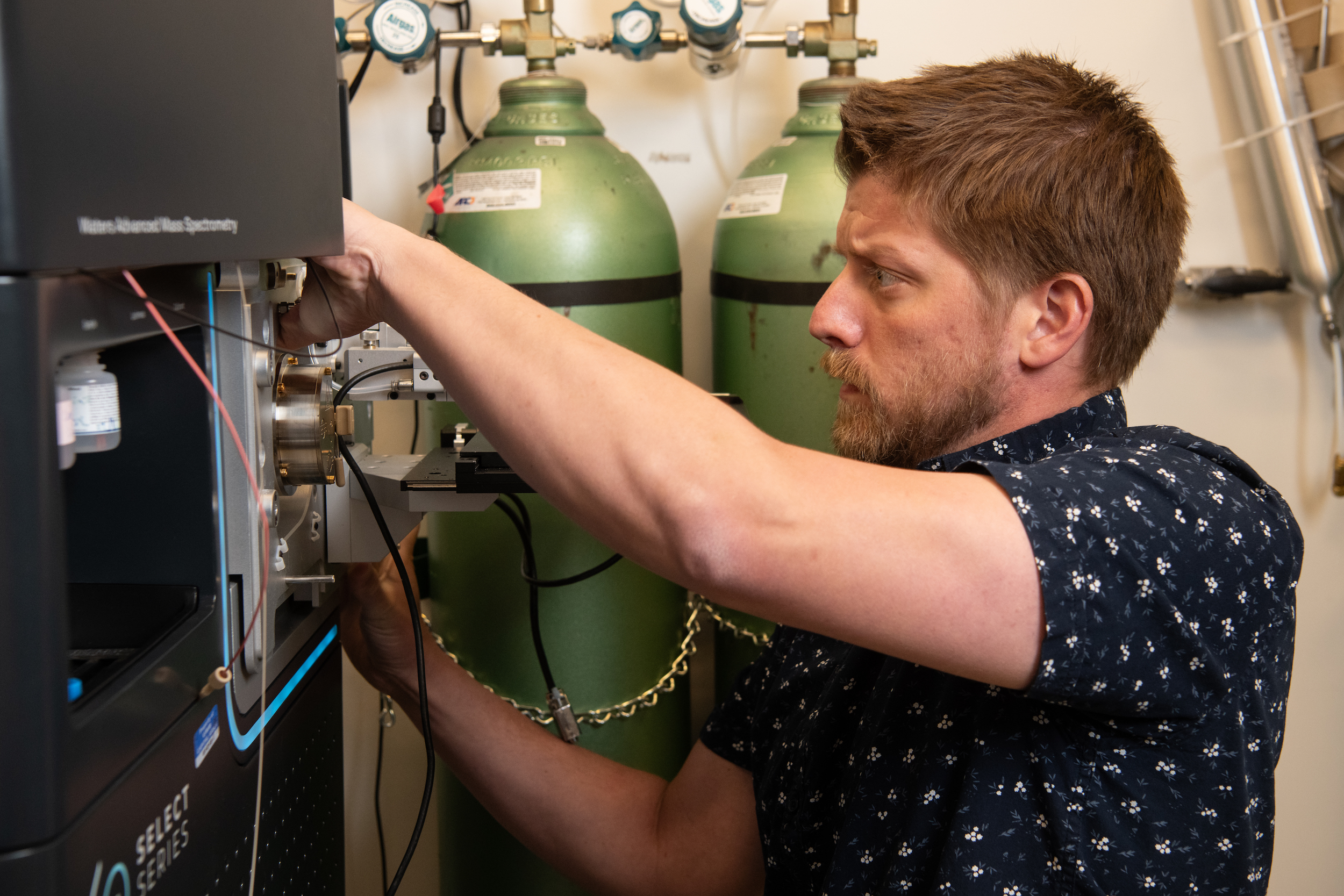Collaboration and Expertise: Mass Spectrometry Center Finds Answers to Researchers’ Questions
June 30, 2025 Chris Zang
Read about the work of the School of Pharmacy’s center in the latest issue of “CATALYST” magazine.
Photo: Temple Andrews prepares a spectrometer in the Mass Spectrometry Center. Photo by Matthew D’Agostino
Step out of the elevator on the seventh floor of Pharmacy Hall and you enter one of the most unique parts of the University of Maryland School of Pharmacy (UMSOP).
Immediately you are met by a row of refrigerators and freezers, compressed gas tanks, the white-noise hum from more than 20 state-of-the-art instruments that reside there, the crisp air conditioning that keeps them happy with temperatures in the 60s. There’s even a separate open-concept wet chemistry laboratory.
But more than a chilly nirvana, UMSOP’s Mass Spectrometry Center (MSC) is a solutions center. Dozens of clients a year from near and far rely on executive director Maureen Kane, PhD, and her MSC team to verify the accuracy of their hypothesis, whether it’s testing a small piece of a puzzle or a big-picture theory.
“We do everything from small-scale single experiments to very large multiyear projects,” says Kane, a professor in the Department of Pharmaceutical Sciences who led the effort to create MSC in 2010. Fifteen years later, it is flourishing, collaborating with partners as varied as the size of the instruments that fill the center’s five rooms.
At its most basic, mass spectrometry involves measuring the masses of ions in a sample to answer diverse biological and chemical questions. A lot of flexibility is necessary because, as Kane says with a smile, “If there’s not a measurement tool available, we have to figure it out. Sometimes the way to answer the question doesn’t exist yet, and we have to come up with that first.”
Kane’s MSC staff of five scientists tackles a wide range of subjects for clients, both within and outside the University of Maryland, Baltimore (UMB). “We are an organized research center,” Kane says, “so we collaborate with people to make our expertise accessible across campus and beyond.”
For example, UMSOP professors Angela Wilks, PhD; Fengtian Xue, PhD; and Alexander MacKerell, PhD, are targeting the pathogen Pseudomonas aeruginosa, a leading cause of hospital-acquired infections and chronic infection in cystic fibrosis. To assist, the MSC team has conducted analyses to better understand factors related to heme uptake and metabolism in infection.
Read more about the Mass Spectrometry Center here.
The latest issue of "CATALYST" magazine highlights Police and Public Safety's comfort K9 Poe; the Costa Rica Faculty Development Institute; Bill Joyner, JD, MSW, of the Office of Community and Civic Engagement; the School of Social Work's B'more for Healthy Babies; the School of Medicine's work to develop physicians for rural areas; facts about the Universities at Shady Grove, and much more.